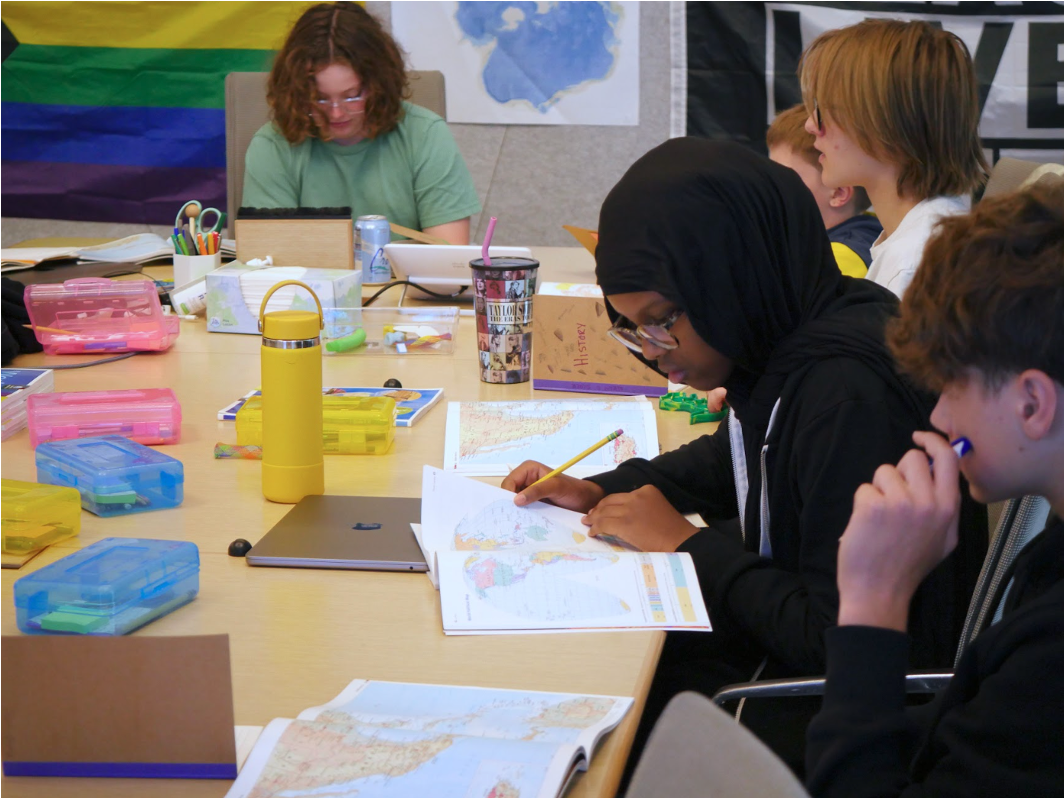“There was a quote that stood out to me: ‘We were still kings among men.’ They’re all going through the same terrible thing but… I don’t know how to explain it. It reminds me of their resilience.”
This week, 9th Grade readers and thinkers analyzed the first sections of their new novel The Marrow Thieves by Cherie Dimaline. Set in a dystopian near future, a small group of Native people find each other in the forests of present day Canada and work together to escape capture, survive a harsh and climate-impacted landscape, and rescue other Native folk. Students each prepare three “Talking Points” for each class, centering their discussion on elements of the last night’s reading that stood out to them, and sharing responsibility for leading literary discussion. Types of talking points include: significant quotes, observations or connections, thought-provoking questions, descriptions of literary craft elements, and noticings about vocabulary.
As they analyze the novel, students also learn about the history of residential schools and other practices for harming and silencing Indigenous Peoples. Students in Thursday’s reading noted the protagonist, Frenchie’s, use of “educated” in quotes and made this connection: “Considering the history we know of the residential schools, I think it’s safe to assume they are being ‘quote educated,’ meaning tortured or put away, gone. If you’re counting stripping you of your culture and doing everything you can to ‘kill the Indian in the child’ then you could call that education but it’s actually not at all. It’s despicable.”
Considering the history we know of the residential schools, I think it’s safe to assume they are being ‘quote educated,’ meaning tortured or put away, gone.
Students will use this novel to study both historical connections as well as timeless messages about belonging, family, survival and conflict. Their final analytical essay will prompt them to make a claim about a character’s internal and external conflicts and to connect it to a larger message. As they follow the tales of Miigwans, Frenchie, Ri-ri, Minerva, Chi Boy, and others, they apply their short story unit learning about conflict, plot structure, setting, perspective and characterization, and expand to study new literary elements, like motif.

